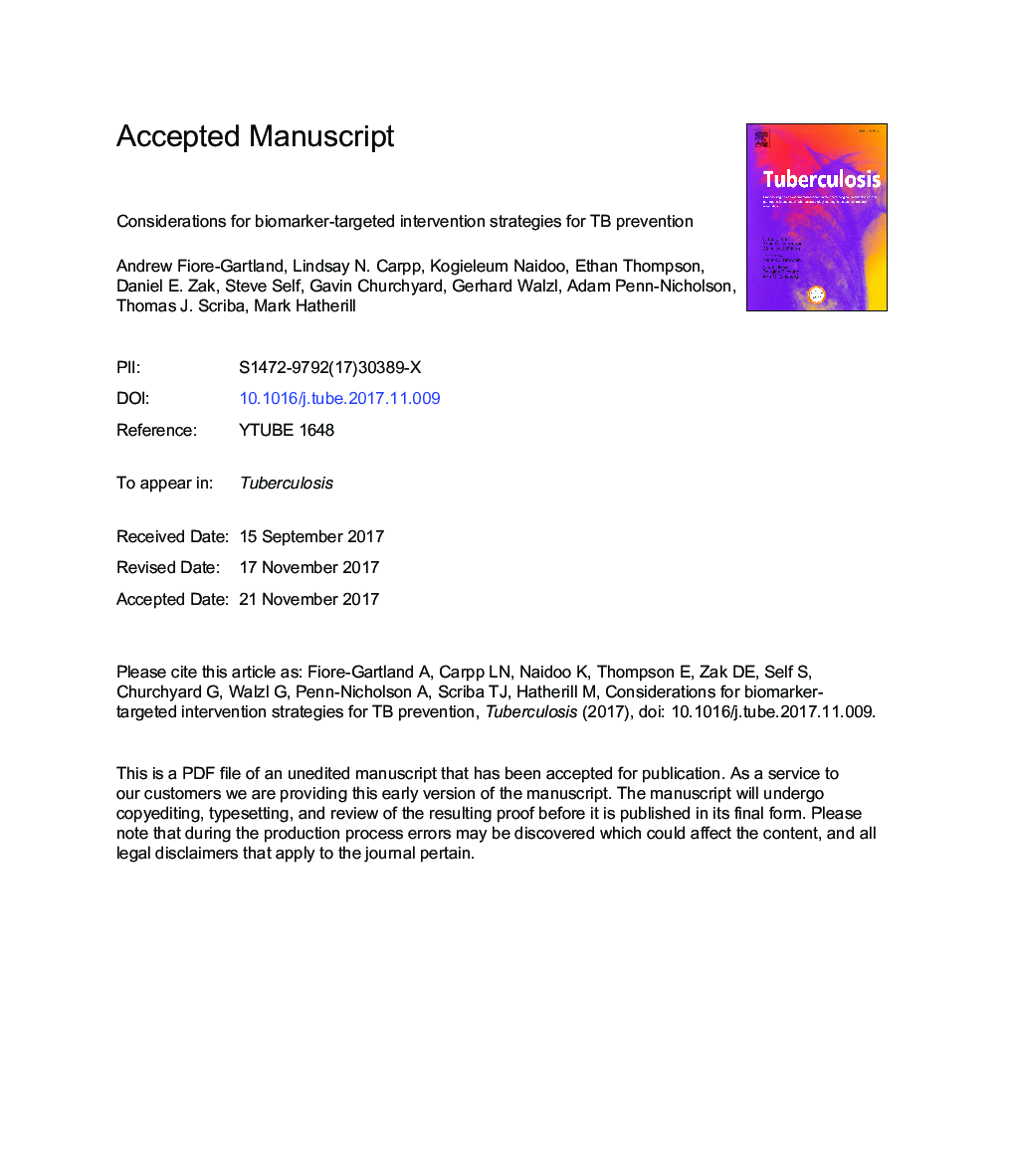| Article ID | Journal | Published Year | Pages | File Type |
|---|---|---|---|---|
| 8485167 | Tuberculosis | 2018 | 24 Pages |
Abstract
Current diagnostic tests for Mycobacterium tuberculosis (MTB) infection have low prognostic specificity for identifying individuals who will develop tuberculosis (TB) disease, making mass preventive therapy strategies targeting all MTB-infected individuals impractical in high-burden TB countries. Here we discuss general considerations for a risk-targeted test-and-treat strategy based on a highly specific transcriptomic biomarker that can identify individuals who are most likely to progress to active TB disease as well as individuals with TB disease who have not yet presented for medical care. Such risk-targeted strategies may offer a rapid, ethical and cost-effective path towards decreasing the burden of TB disease and interrupting transmission and would also be critical to achieving TB elimination in countries nearing elimination. We also discuss design considerations for a Correlate of Risk Targeted Intervention Study (CORTIS), which could provide proof-of-concept for the strategy. One such study in South Africa is currently enrolling 1500 high-risk and 1700 low-risk individuals, as defined by biomarker status, and is randomizing high-risk participants to TB preventive therapy or standard of care treatment. All participants are monitored for progression to active TB with primary objectives to assess efficacy of the treatment and performance of the biomarker.
Keywords
Related Topics
Life Sciences
Immunology and Microbiology
Applied Microbiology and Biotechnology
Authors
Andrew Fiore-Gartland, Lindsay N. Carpp, Kogieleum Naidoo, Ethan Thompson, Daniel E. Zak, Steve Self, Gavin Churchyard, Gerhard Walzl, Adam Penn-Nicholson, Thomas J. Scriba, Mark Hatherill,
